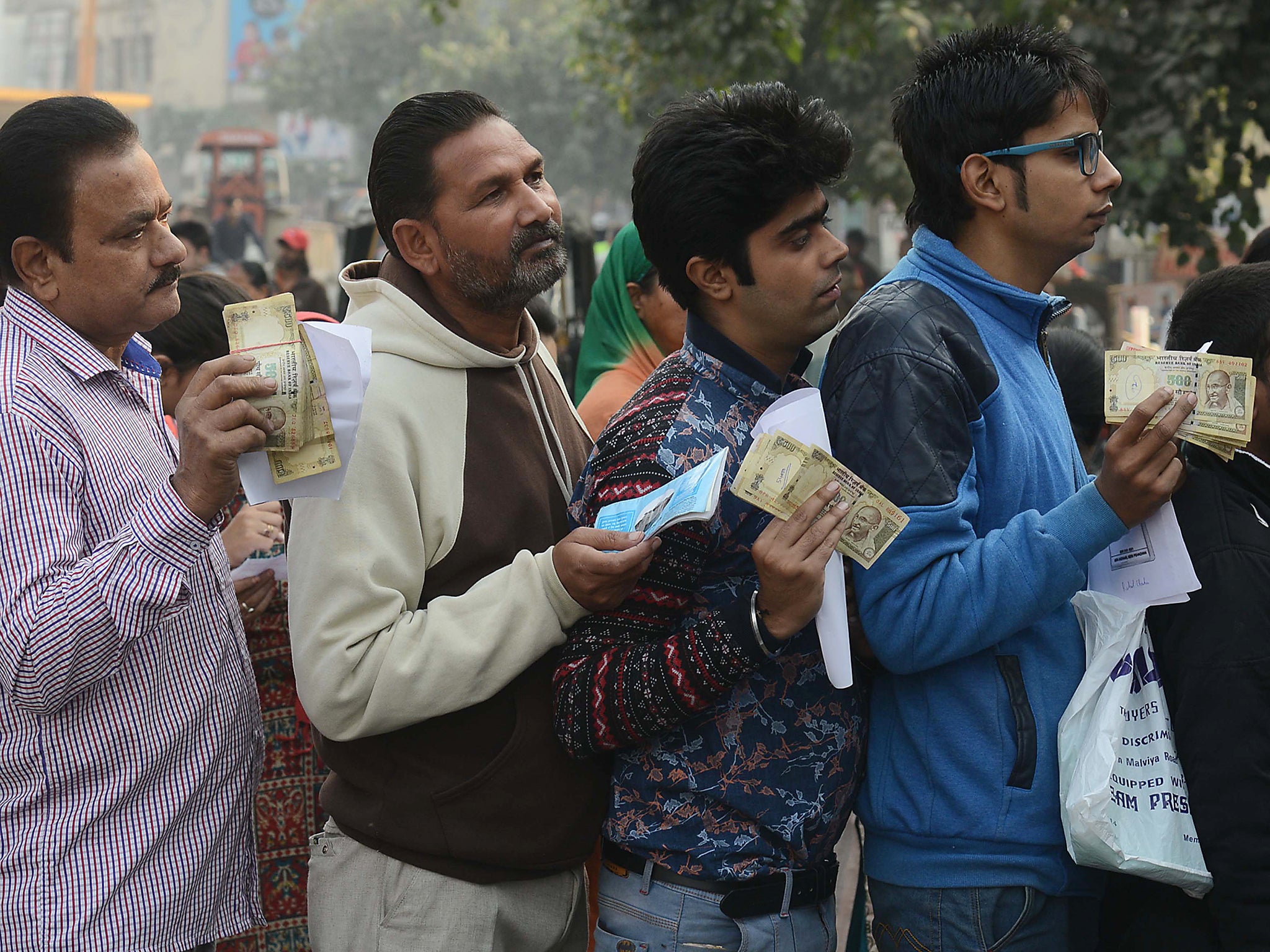Rich people in India are begging the poor to help them after large note ban
Wealthy individuals treat servants with unusual politeness in hope they will help launder cash

Rich people in India are begging the poor to launder money for them after the Indian government abolished the country’s largest currency notes in a bid to curb unaccounted wealth and corruption, according to reports.
Wealthy Indians are said to be treating their maids, drivers, nannies and cooks with unusual politeness, in the hope of persuading them to launder undeclared cash they had been stashing in their homes following what the Indian government called a “strike” against people who keep unaccounted-for cash in the country.
Rahul Sharma, a driver from Delhi, said he was offered a cup of tea by his employer for the first time.
Mr Sharma told the Sydney Morning Herald: “I was shocked at his sudden niceness. It went on for two days. He didn't even bother to remember my name. When he wanted to summon me, he’d call out ‘driver!’
“On the third day, the penny dropped. He asked me to deposit 250,000 rupees (£3,000) in my bank account on his behalf so that he could get rid of his black money.”
In another case, it was reported that a woman took two of her servants to a bank and “shamelessly” ordered them to exchange her old notes with new notes from their account.
A witness, known only as “Munkeyy”, wrote in an online forum on Reddit: “I was standing in the queue at a bank to exchange my old notes. A middle-aged aunty brought her servants (a wife and husband) to the bank.
“She made them stand in the queue with her, shamelessly gave them 4,500 rupees each in the bank and asked them for an exchange. The male servant had an ID card he could exchange and the aunty could exchange, but the servant's wife did not have any ID with her and so got nothing.
“She was shamelessly using them to exchange her old notes and I am not sure if those poor servants got a commission for this or not.”
Experts had predicted that those who would be worst-hit by the crackdown would be doctors, lawyers and wealthy professionals in real estate, who are often paid in cash to avoid taxes and stash their money in overseas accounts.
Following the introduction of the note ban, panicked customers lined up at banks to exchange and deposit old notes, sometimes standing in queues for hours. Fistfights broke out at petrol pumps when clerks ran out of change, while at toll booths operators simply gave up charging and let cars stream through.
Indian Prime Minister Narendra Modi announced the crackdown in an attempt to fulfill his election promise of curbing tax evasion and recovering income stashed overseas after illegally evading taxation, after he struck a chord with 1.3 billion Indians in the 2014 national polls.
The government had said concessions would be allowed for use of the notes in government-run and private hospitals, chemists and petrol pumps until 11 November, but this was then extended to 24 November.
Join our commenting forum
Join thought-provoking conversations, follow other Independent readers and see their replies
0Comments